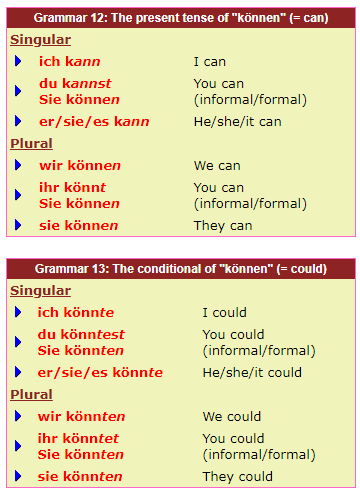"Können Sie" or "könnten Sie"?
You can use different forms of the verb "können" to express the difference between the English "I can" and "I could". The present tense of the verb is used to translate the former, the conditional the latter.

When asking questions, you would use the present tense of "können" if you are merely asking for a simple statement of fact, and the conditional if you are trying to be more polite.
Kann ich Ihnen helfen?
(Can I help you?)
Können Sie um 12.40 Uhr kommen?
(Can you come at 12:40?)
Kann ich bitte Herrn Doktor Schmidt sprechen?
(Can I please speak to Doctor Schmidt?)
Könnte ich vielleicht Herrn Schneider sprechen?
(Could I perhaps speak to Mr. Schneider?)
Könnten Sie mich bitte mit Frau Hartmann verbinden?
(Could you please connect me with Frau Hartmann?)
As you can tell from the third and fourth example in this list, the distinction between the "moods" implied by the two forms of the verb can often be very small. The person asking for Doctor Schmidt would not be deemed to be impolite for having used the present tense of "können".
When you are not asking a question, but merely stating your ability to do something, the conditional of the verb indicates that you would be able to do something depending on circumstances.
Ich kann Ihnen helfen.
(I can help you.)
Ich könnte Ihnen helfen.
(I could help you.)
Wir können heute in die Sprechstunde kommen.
(We are able to come to the surgery today.)
Wir könnten heute in die Sprechstunde kommen.
(We might be able to come to the surgery today.)
 英语
英语 日语
日语 韩语
韩语 法语
法语 西班牙语
西班牙语 意大利语
意大利语 阿拉伯语
阿拉伯语 葡萄牙语
葡萄牙语 越南语
越南语 俄语
俄语 芬兰语
芬兰语 泰语
泰语 丹麦语
丹麦语 对外汉语
对外汉语

